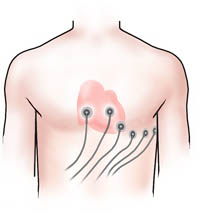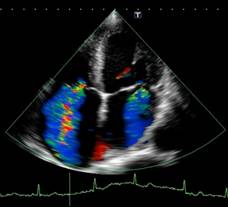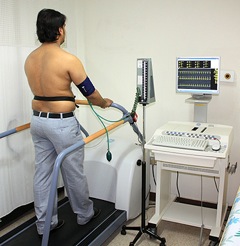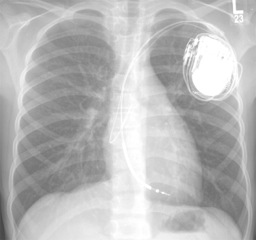DANIEL M. COOPER, MD, FACC |
|
Electrocardiogram (EKG)


A test that records on paper the electrical activity of the heart using an EKG machine.
This exam gives a baseline understanding of the rhythm and rate of the heart, and can help identify a heart attack among other abnormalities.
Doppler Echocardiogram

An Ultrasound exam obtains views of the heart by moving a small probe called a transducer to different locations on the surface of the chest or abdominal wall.
Sound waves provide images of the heart blood flow, chambers and valves in motion.
This is an excellent noninvasive exam, without any side effects, that provides a significant amount of information about the heart function.
Exercise Stress Echocardiogram

The exercise stress echo test involves exercising on a treadmill while you are closely monitored. Echocardiogram pictures at rest and post-exercise are compared.
The test is used to:
- Determine how well your heart tolerates activity
- Evaluate the function of your heart and valves
- Determine your likelihood of having coronary artery disease
- Evaluate the effectiveness of your cardiac treatment plan
Pacemaker Analysis

After a pacemaker is implanted, periodic checks are done usually twice a year or more frequently as needed at the office. A special computer is used called a pacemaker analyzer that uses noninvasive communication link to the pacemaker device.
The newer devices can also be checked remotely by a home device that transmits the information via the phone line to the physician's office.
Implantable Cardioverter Defibrillator (ICD) Analysis

After an ICD is implanted, periodic checks are done usually twice a year or more frequently as needed at the office. A special computer is used called a pacemaker/ICD analyzer that uses noninvasive communication link to the device.
The newer devices can also be checked remotely by a home device that transmits the information via the phone line to the physician's office.